Your buyer’s guide for an electric vehicle in Delaware, including rebates and deadlines
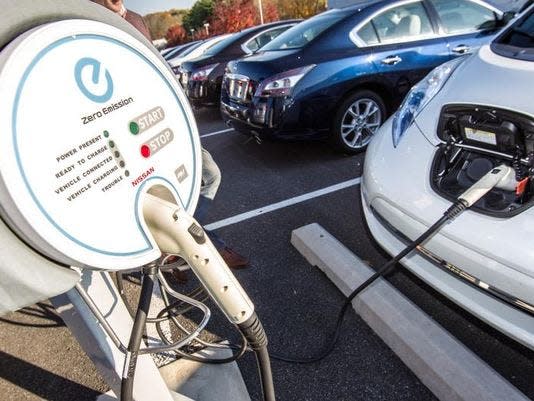
Policymakers and businesses are betting on Delaware's electric vehicle future.
Delaware recently passed clean car regulations that mandate car manufacturers to supply increasing percentages of electric vehicles to Delaware starting in 2026, ramping up to 82% of new cars by 2032.
We've assembled a list of important things to know about purchasing an electric vehicle, including how to save money and what to watch out for.
More: Delaware implements electric vehicle mandate, phasing out the sale of gas-powered cars
What electric vehicle is right for me?
Like any type of car purchase, test driving and doing research is important before going into the process. There are three main types of electric vehicles to keep in mind: battery electric, plug-in hybrid, fuel cell electric.
Battery electric vehicles run on electricity only and use rechargeable batteries that refuel by plugging into the wall or charging station. Tesla models, for example, are all considered battery electric.
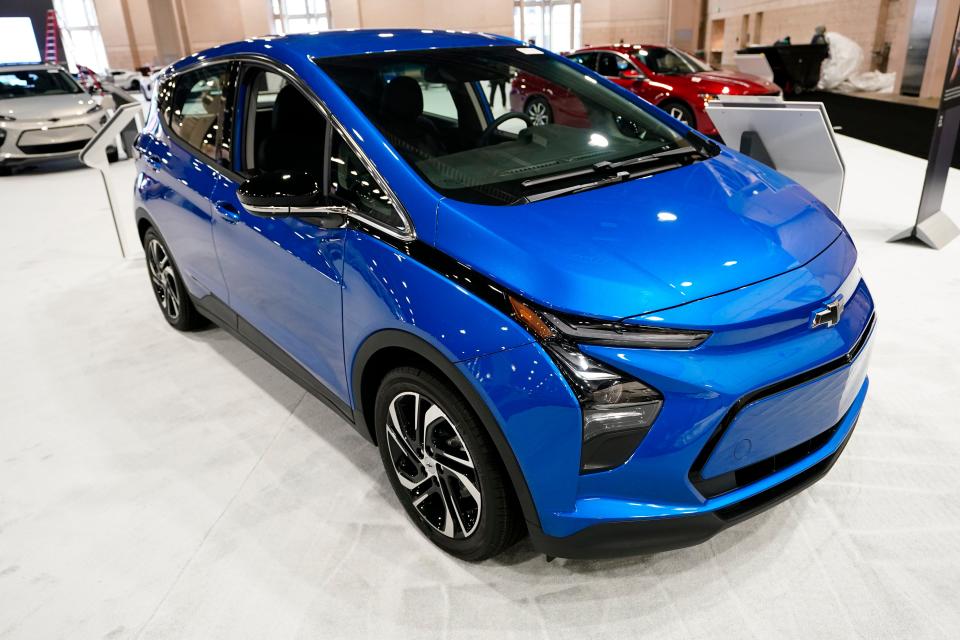
There are multiple different hybrid options, but only plug-in hybrids are typically eligible for rebates and tax credits.
A mild hybrid has an electric motor and a battery to support it. With mild hybrid cars, most driving is powered by the gas-powered engine while secondary systems like the radio, heating and air conditioning are powered by the battery. The Ford Puma, Audi A8 and Hyundai Tucson are all available as mild hybrids.
Regular hybrid cars work like electric cars at slower speeds and are powered by gas-powered combustion engines at higher speeds. They cannot be charged with energy from the grid, only through regenerative braking. The Honda Accord, Toyota Camry and Hyundai Sonata all come in a hybrid form.
Mandate FAQs: Your questions, answered: What you need to know about state's new electric vehicle mandate
Plug-in hybrids can be both charged with electricity and with gasoline, although the primary power source is the battery. Their batteries can also recharge through regenerative braking while driving. Most plug-in hybrids cannot be charged with DC Fast Chargers. Examples include the Jeep Wrangler 4xe, Chevy Volt or the Toyota Prius and RAV4.
Fuel cell electric cars are powered with hydrogen gas that is turned into electric energy with the fuel cell engine. Examples of fuel cell models include the Toyota Mirai, Honda Clarity and the Hundai Nexo.
The U.S. Department of Energy has a database comparing the efficiency of different types of electric vehicles, depending on what type you’re looking for.
Will it cost more?
The retail prices for electric vehicles are slightly higher than combustion engine vehicles. According to July 2023 Kelley Blue Book values, the average price for a new internal combustion engine vehicle in the U.S. was around $48,000 while a new electric vehicle averaged around $53,000.
However, it is typically cheaper to charge electric vehicles than it is to keep a gas tank full and maintenance costs are usually cheaper. According to AAA, the electricity required to drive 15,000 miles per year in a compact electric vehicle costs around $550 compared with $1,255 for an average combustion engine vehicle.
Electric vehicles don't require upkeep like oil changes or other tune-ups. Regular maintenance usually involves a tire rotation, replacing the air filter and wiper blades and refilling washer fluid. Depending on the model of car, tires on electric vehicles may need to be changed more due to the heavier weight of the vehicle.
Average maintenance costs for an electric vehicle are estimated to be around 6 cents per mile while non-electric cars average around 10 cents per mile, according to the Office of Energy Efficiency and Renewable Energy.
How can I save money?
There are statewide rebates and federal tax credits available for the purchase of electric vehicles and charging stations. Delaware's Clean Vehicle Rebate Program is currently set to expire in April, but is likely to be extended.
More Rebate information: Thinking of buying an electric car in Delaware? How to save money with rebates, credits
What rebates are available?
There are statewide rebates and federal tax credits available for electric vehicle purchases. They can be applied for in conjunction and can potentially save up to $10,000 on a vehicle purchase.
The Delaware Clean Vehicle Rebate Program includes up to $2,500 for electric vehicles and $1,000 for plug-in hybrids. There are additional rebates for installing charging stations in your home, including up to $2,500 for single port chargers and $5,000 for dual port chargers.
Rebates are also currently available only at certain dealerships in the state.
Copy: Bicyclist crashes by county
Infogram
Federal tax credits up to $7,500 are available for new and used vehicles.
Who and what is eligible for a rebate?
Eligibility and the amount of money a rebate or tax credit are dependent on factors like the model of car being purchased, the price of the vehicle and the gross income of the household.
The purchaser of an electric vehicle must be a Delaware resident to be eligible for a rebate, even if the vehicle was bought out-of-state.
Delaware has a list of vehicles eligible for rebate.
A list of vehicles eligible for the federal tax credit can also be found online.
For the statewide rebate the total vehicle price, including any fees, cannot exceed $50,000.
With the federal tax credit the sale price cannot exceed $80,000 for vans, sport utility vehicles and pickup trucks and $55,000 for other vehicles. Adjusted gross income must not exceed $300,000 for married couples, $225,000 for heads of households and $150,000 for all other filers.
How do I apply?
Here are instructions for applying for Delaware's rebate:
Register as a "supplier" with the state of Delaware using the appropriate portal; you will need to keep the supplier ID number provided after this process. Instructions are available for this process.
Put together your application package as one PDF file.
Send the application package in one PDF file to DNREC.Transportation@delaware.gov.
Wait 8-10 weeks to receive your rebate.
To claim the federal tax credit, file Form 8936 with your tax return. You'll need your vehicle identification number when filing.
Are electric vehicles reliable?
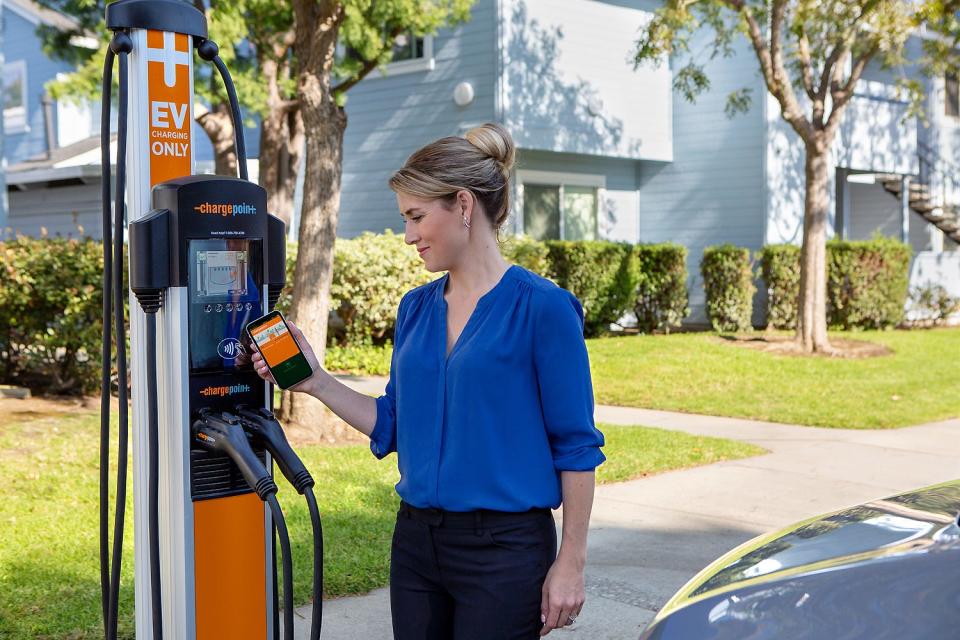
Common concerns about purchasing electric vehicles have to do with the reliability of the car. Here are some common questions and misconceptions that tend to worry consumers.
Will electric vehicles run out of charge while I'm driving?
According to a AAA consumer survey, nearly 95% of surveyors reported never having run out of charge while driving.
Electric vehicles do typically have a shorter driving range, although they are improving. Most can travel more than 100 miles on a charge, depending on the model.
Long road trips should be planned strategically, accounting for when and where to charge up the vehicle. Apps like PlugShare and Electrify America are available to make mapping the route easier.
Do extreme temperatures impact Electric Vehicles?
Similar to combustion engine vehicles, extreme temperatures can negatively influence the range of electric vehicles. The severity of the impacts often depends on the vehicle's model.
A study that analyzed 7,500 vehicle batteries saw that the range for electric vehicles can dip by 3% at around 85 degrees Fahrenheit. The range loss can reduce up to 30% at temperatures above 100 degrees.
Does the battery need to be replaced?
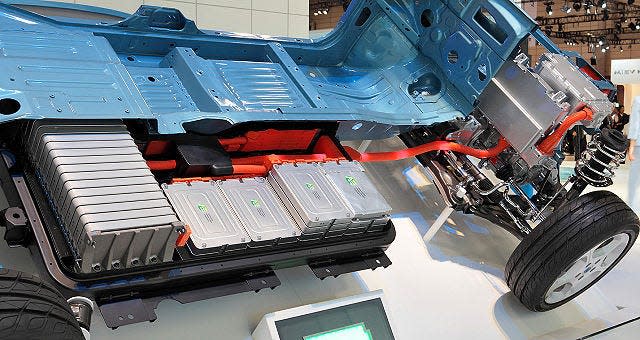
A study by the Department of Energy concluded that electric vehicle batteries can last between 12 to 15 years in a moderate climate and eight to 12 years in more severe climates.
Battery replacements aren't very common, but can be costly if needed. A survey of 15,000 EV drivers in March and found that depending on the car's model, replacement costs can go for anywhere between $5,000 and $20,000.
Can the grid handle the influx?
One of the federal requirements for the statewide charging network is that every station installed must have at least four individual ports, each generating 150 kW of energy. Electric utility companies around the state have stated that they are confident that the electric grid can handle the influx.
Utilities like Delmarva and Delaware Electric Company are offering incentives like lower rates or billing credits for customers who charge their vehicle during “non-peak” hours, when the grid is being used less.
Charging stations
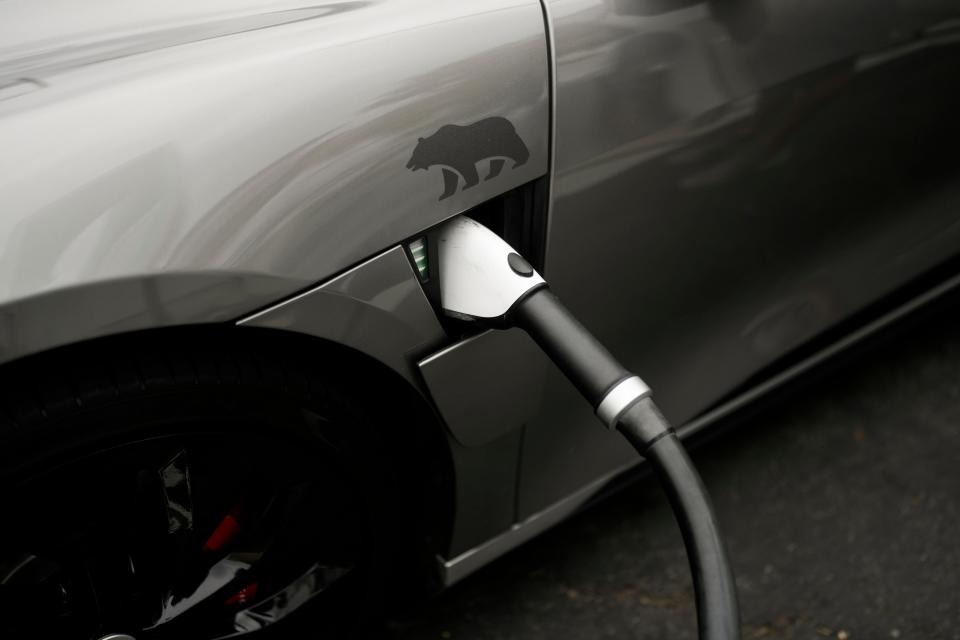
There are different types of charging stations available, depending on whether the system is installed in the home and the model of car being used.
A full charge usually costs between $6 and $13, depending on the model of the car. A full charge can take from three to 12 hours. A “fast charge” can take anywhere from 12 to 30 minutes.
Over 500 charging units exist around the state currently, a majority of which are stationed in New Castle County above the Chesapeake & Delaware Canal. You can use an interactive map of charging stations to plan your travel needs.
Delaware has received $17 million from the federal National Electric Vehicle Infrastructure Plan.
Check out an in-depth look into Delaware’s charging landscape.
Contact Molly McVety at mmcvety@delawareonline.com. Follow her on Twitter @mollymcvety.
This article originally appeared on Delaware News Journal: What to know before purchasing an electric vehicle in Delaware

